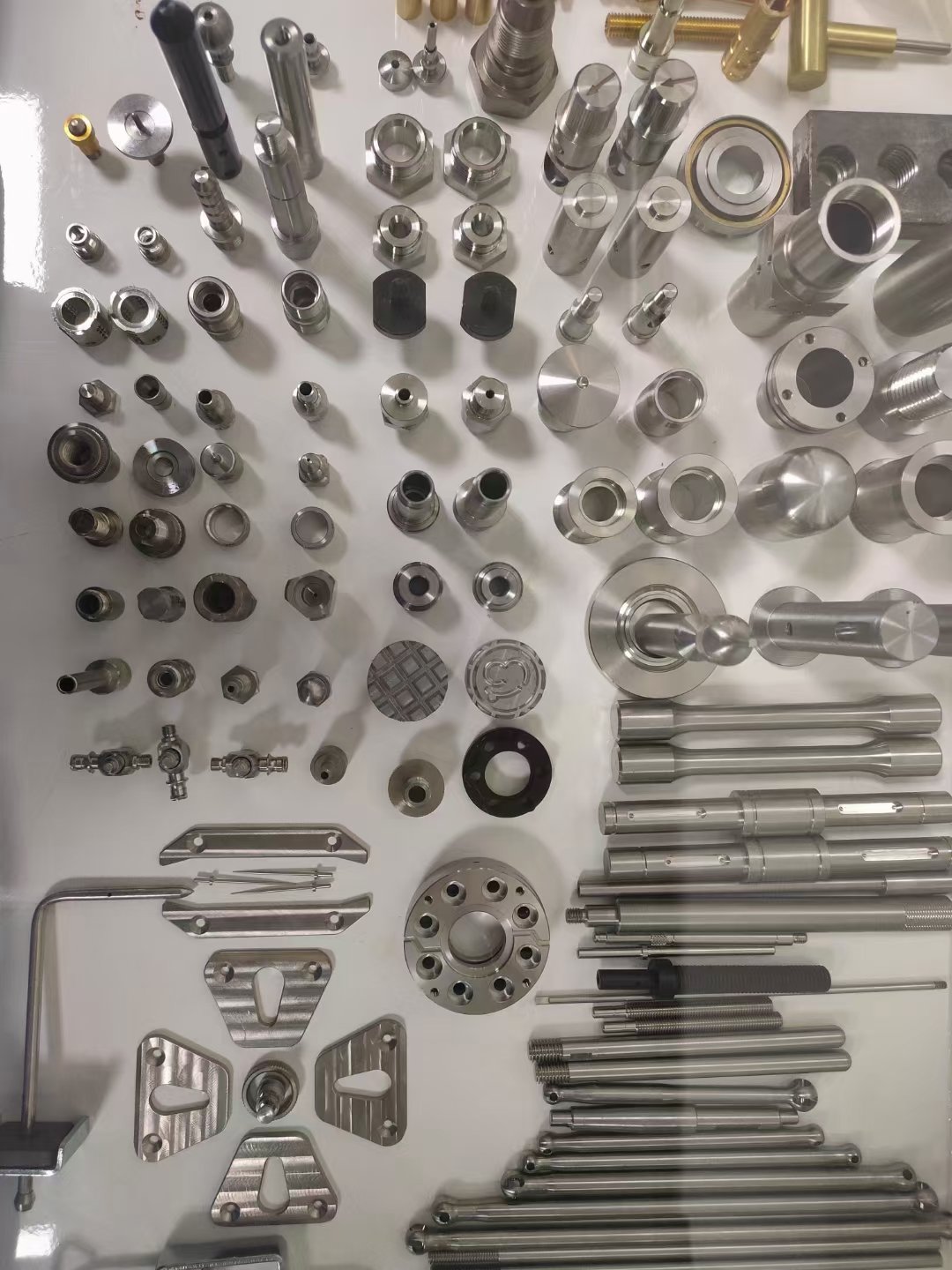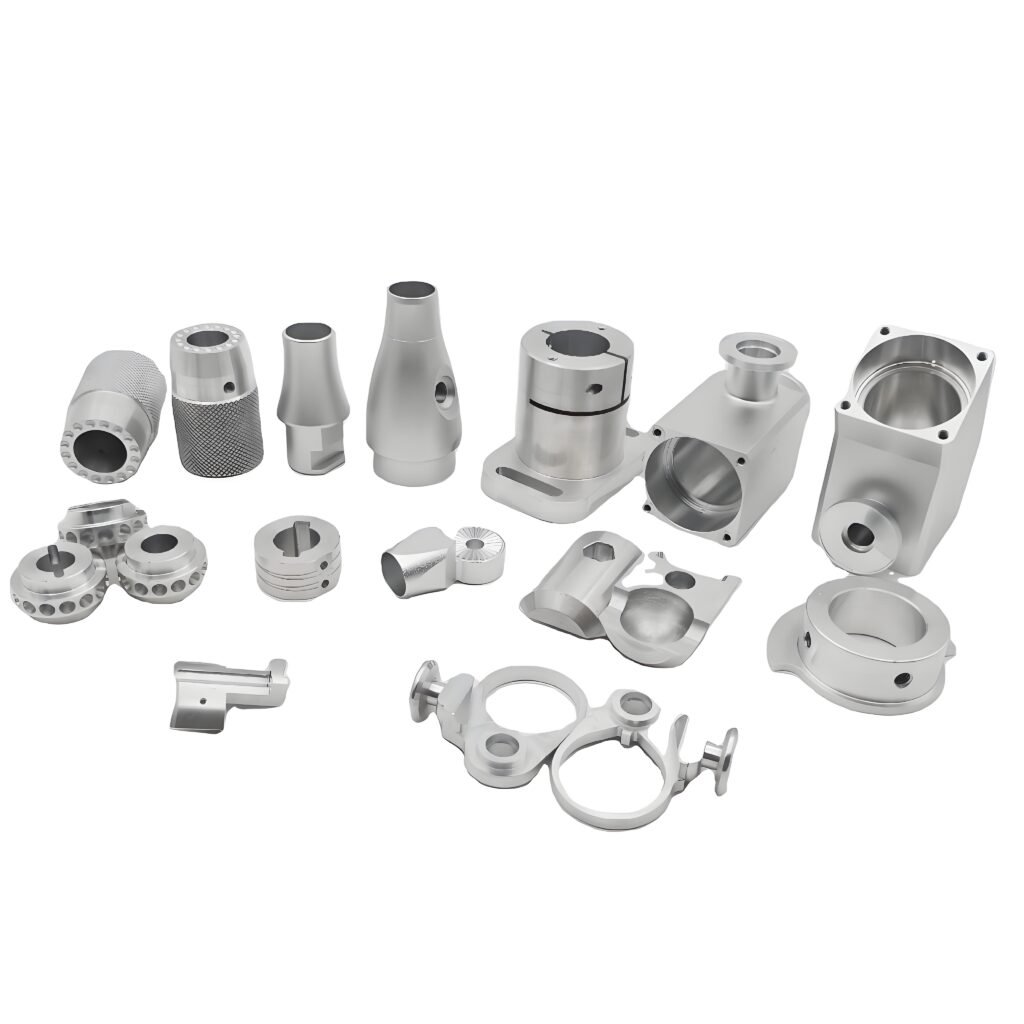At Jupaicnc, we specialize in providing cutting-edge solutions for multi-material CNC machining, especially tailored for hybrid medical prototypes. In the rapidly evolving world of healthcare, the demand for highly customized medical components has grown significantly. Hybrid medical prototypes combine the best of various materials to enhance functionality and performance. Our expertise in medical components prototype machining ensures that these prototypes meet the exacting standards required for both research and clinical applications. By utilizing advanced CNC machining techniques, we ensure the precision and quality of each part, enabling the development of innovative medical devices that can save lives and improve patient outcomes.

The process of CNC machining, or computer numerical control machining, is integral to modern manufacturing. It allows for the creation of complex, precise parts with a level of consistency that traditional methods cannot match. For hybrid medical prototypes, the ability to work with multiple materials in one piece is essential. Jupaicnc offers this capability by integrating materials like metals, plastics, ceramics, and composites in a single prototype. Each material serves a unique purpose, such as providing strength, flexibility, or biocompatibility. Our expert machinists carefully select the optimal material combination based on the specific requirements of the medical application, ensuring that the prototype can withstand the demands of its intended use while remaining cost-effective and efficient to produce.
One of the key challenges in medical components prototype machining is the need for precision. In medical applications, even the smallest deviation from design specifications can lead to failures or, worse, safety risks for patients. At Jupaicnc, we leverage state-of-the-art CNC machines to achieve tight tolerances and flawless finishes. Whether the prototype is intended for surgical tools, implants, or diagnostic equipment, our commitment to accuracy ensures that each part fits together seamlessly and functions as intended. The use of multi-material machining further enhances the performance and durability of these prototypes, as different materials can be used in specific areas to meet the technical demands of each part.
Another aspect that sets Jupaicnc apart is our deep understanding of the unique challenges involved in hybrid medical prototype production. Medical prototypes often require the integration of different materials with distinct properties, such as hardness, flexibility, and resistance to corrosion or heat. Our team of experts is skilled in handling these materials in a way that optimizes the performance of the prototype. The precision CNC machining process allows for the creation of intricate features, such as fine threads or tight-fitting interlocking components, which are essential for many medical applications. This ability to combine materials in a single prototype is what makes Jupaicnc a leader in the field of medical component manufacturing.
As the demand for medical prototypes grows, so does the need for faster and more cost-effective production methods. Jupaicnc’s advanced multi-material CNC machining techniques allow for rapid prototyping of complex designs, enabling our clients to move from concept to production much more quickly. This not only reduces time to market but also allows for more iterations and refinements in the prototype before final production. With our expertise, we can help accelerate the development of new medical devices, making it easier for companies to bring their innovative ideas to life and ultimately improve healthcare delivery.
The versatility of CNC machining also extends to the types of materials that can be used in medical prototypes. At Jupaicnc, we work with a wide variety of materials, each chosen for its specific properties that suit the needs of the prototype. Metals such as titanium, stainless steel, and aluminum offer strength and durability, while biocompatible plastics and ceramics can be used in components that come into contact with the human body. Additionally, composite materials are ideal for creating lightweight yet strong prototypes that require complex geometries. This broad material selection allows for greater design flexibility and enables us to meet the diverse needs of our clients in the medical field.
Hybrid medical prototypes represent a significant advancement in the development of medical technology. By combining different materials in a single prototype, manufacturers can create devices that perform better and are more suited to their intended applications. Jupaicnc plays a pivotal role in this process by providing expert medical components prototype machining services that meet the highest standards of quality and precision. Our multi-material CNC machining capabilities enable us to produce prototypes that help shape the future of medicine, from surgical tools to implants and beyond. We are proud to be at the forefront of this technological innovation, driving the development of safer, more effective medical devices that have the potential to improve lives worldwide.
Multi-Material CNC Machining for Hybrid Medical Prototypes – Jupaicnc Innovation
In the rapidly evolving field of medical technology, precision, versatility, and innovation are paramount. Jupaicnc proudly introduces its Multi-Material CNC Machining capabilities, designed specifically for developing hybrid medical prototypes. This cutting-edge process represents a revolution in how we approach medical device design and production, combining various materials to achieve superior functionality and performance.
Unveiling the Unique Features
Our advanced CNC machining technology integrates multiple materials within a single prototype, unlocking a range of possibilities that traditional methods simply cannot achieve. Key features include:
- Material Variety: Seamlessly integrate metals, plastics, and composites to enhance the prototype’s mechanical properties.
- Precision Engineering: Achieve tolerances as tight as a few microns, ensuring that even the most intricate medical devices are produced with remarkable accuracy.
- Rapid Prototyping: Shorten development cycles with quick turnaround times, allowing for faster testing and iteration.
- Customization: Tailor designs to meet specific regulatory or user requirements, ensuring that every prototype is fit for purpose.
The Benefits of Hybrid Prototypes
Hybrid prototypes, made possible by our multi-material CNC machining, offer significant advantages in the medical sector:
- Enhanced Functionality: By combining different materials, prototypes can leverage the best attributes of each, improving overall performance.
- Weight Reduction: Optimize designs to minimize weight without compromising strength or durability, which is critical in medical applications.
- Cost Efficiency: Reduce material waste and production costs with precision machining techniques while maintaining high-quality standards.
- Innovative Designs: Push the boundaries of design, fostering creativity and exploration in creating new medical solutions.
Value Proposition for the Medical Industry
In a sector where every second counts, the ability to swiftly prototype and extensively test new designs is invaluable. Jupaicnc’s multi-material CNC machining not only accelerates the innovation timeline but also enhances the overall quality of medical devices. By adopting our state-of-the-art technology, manufacturers and researchers gain a competitive edge in bringing their innovative ideas to market quicker and with greater confidence.
Discover how Jupaicnc is shaping the future of medical devices through multi-material CNC machining. Join us in our mission to innovate and redefine the possibilities in medical technology!

